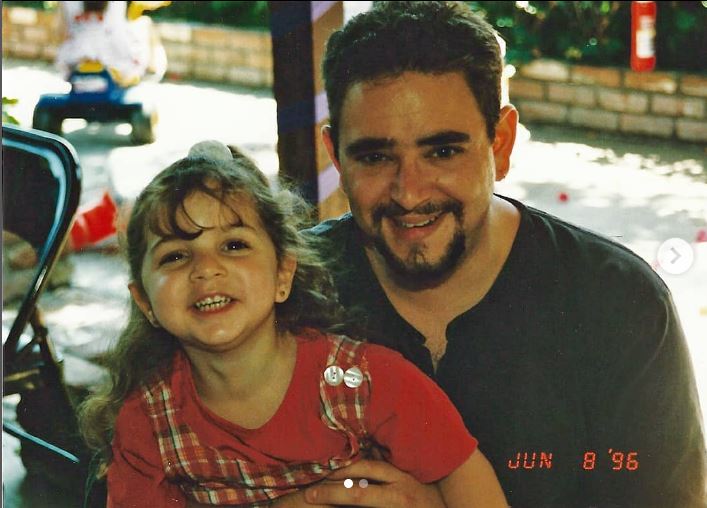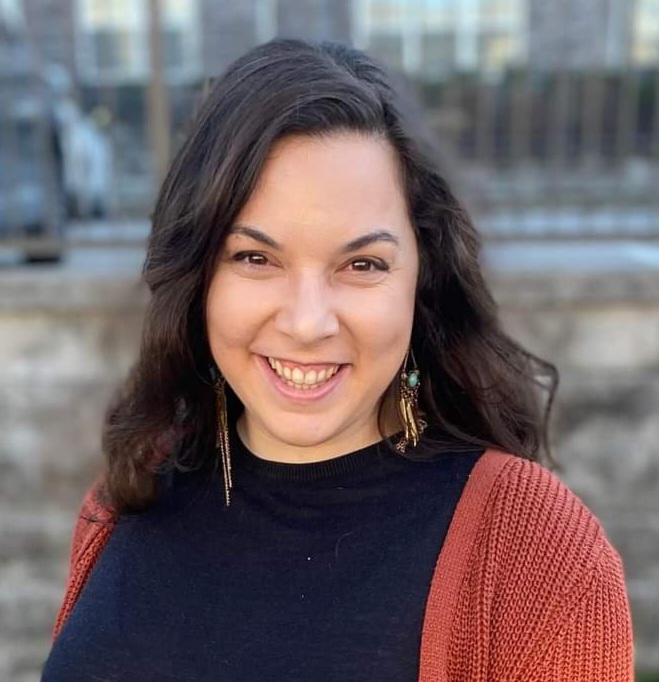
Talia Shapiro Blank and her uncle, Jason.
Trigger Warning: This article is about suicide and includes a personal story from the author and resources.
September is Suicide Prevention Awareness Month, and it is important to recognize the stigmas against mental health and suicide that remain in our society. To me, we must keep talking about mental health and ways to take care of ourselves and others. To that end, I want to share my story and a few resources.
My passion for preserving mental health started when I was just 14 years old. Trauma throughout my life had me struggling with my mental health. Finding the right support has taken time. This search can be exhausting. Finally, with the best team, I have begun to find the true healing I have always needed and deserved.
Although I graduated with a Hospitality Management degree, I felt something was missing in my career. I wanted a more fulfilling role. In 2018, I trained to become a volunteer crisis counselor on the National Suicide Prevention Crisis Line. On day one, I knew in my heart that I had found what I was looking for. I have now been with the crisis line for four years and counting. It is a gift to support people in the darkest moments of their lives.
In April 2019, I was on my way to the hospital as my sister-in-law had just given birth to a beautiful baby. I got an unexpected call from my aunt. My heart sank to my stomach. She was someone who texted, and we never talked on the phone, so I knew something was wrong. I took a breath and braced myself. In a broken voice, she told me Jason (my uncle) had killed himself that morning. My body froze. My uncle was our chosen family. He was my dad’s best friend since well before I was born. I was not prepared for this call - how could anyone be?
I then braved the call to tell my dad his best friend had passed away. He was in shock, to say the least.
He said, “I just texted him this morning. He never responded.”
My uncle always struggled with his mental health, and just days before, he had been going through the unimaginable. I knew he was about to break, but I never reached out. By the time my dad did, it was too late.
While still in shock, I went to the hospital to welcome my nephew. I held in my pain to share this celebration with the rest of the family. It was and still is a confusing day for me. One of the most special days of my life landed on one of the worst days of my life.
Having lost someone I love to suicide, I am a survivor. Suicide is complicated. Everyone handles suicide loss differently. It’s common to get angry or regretful. It’s normal to wonder what we could have done to “save” the person. And while I don’t blame myself, I sometimes feel shame knowing my uncle was struggling, and even thought he might end his life, and yet I didn’t reach out. I know the choice was his. Nevertheless, the guilt creeps in sometimes.
Unfortunately, so many people lack access to quality mental healthcare. Some people rely on free resources to get support and temporary relief from their pain. The phone number, 988, has recently launched as the new phone number of the National Suicide Prevention Lifeline. The new hotline phone number should make it easier for folks to reach out if and when they need help.
Your sisterhood can educate and take action together in the following ways:
1. Reduce stigma through education by having a program about mental health and suicide.
2. Take action by publicizing the 988 service in your sisterhood and congregational email blasts and on your community’s Facebook pages.
3. Share the RAC’s action alert on the Mental Health Services for Students Act, which increases funding for mental health services in public schools. This bill passed the House in May 2021 but has not moved forward in the Senate.
4. Share the RAC’s compiled list of mental health resources.
5. Include this language in your blogs or social media posts when sharing these resources: “If you or someone you know is struggling with their mental health, you are not alone.”
The Talmud shares with us the idea that “one who saves a life saves the world.” As an organization, WRJ has adopted several resolutions focused on saving lives in part by destigmatizing mental health care, such as Elder Abuse (2009), Child and Adolescent Self Destructive Behavior (2005), Complete Health - Mental and Physical (2001), and the Plight of the Elderly in Our Society (1983). In addition, many social justice issues we work on in order to create change impact our mental health by enhancing the quality of life, supporting access to basic needs, and allowing folks who are struggling to be seen. This gives us the opportunity to live out our Jewish values and do life-saving work.
There are many misunderstandings about different mental health conditions. Since they aren’t visible, some people believe they aren’t real. The lack of education leads to spreading false information. The only way to destigmatize and learn is to talk about it and call things like “suicide” and “depression” for what they are. People often skirt around the issue due to personal discomfort, but practicing being direct and talking about it head-on makes it easier over time.
With this 988 launch, there have been a lot of misconceptions about what the hotline is, who you would be talking to, and what happens when you call in or chat. Here are four common myths about the hotline and the truth:
Myth #1: Counselors will call the police if you tell them you are having thoughts of suicide.
Fact: The goal is to support those seeking help through their emotional crisis. Most people who reach out are just looking for someone to talk to and are not at imminent risk for suicide. That being said, there are occasions when calling the police is imperative to protect someone’s life. And the help seeker will often ask for this if they are at imminent risk.
Myth #2: Counselors follow a script at all times. They are paid to talk to you and don’t genuinely care because they are doing a job.
Fact: All counselors want to be there for help seekers. Counselors are real people having a unique conversation with each individual. They genuinely care about your well-being. A majority are trained volunteers, but to meet the needs of the high volume of calls, some - depending on location - are paid.
Myth #3: You have to be suicidal to reach out. Your specific issue isn’t serious or important enough to discuss, and no one will understand your unique situation.
Fact: You don’t have to be suicidal to reach out. And no matter the crisis you are experiencing, you matter. Many people who are suicidal feel like they don’t have anyone to talk to, so part of the purpose of the crisis line is to allow folks a space to connect with someone. Connection in and of itself is suicide prevention.
Myth #4: Talking about suicide will make someone feel suicidal.
Fact: Talking about suicide will not make someone suicidal. If someone isn’t thinking about suicide, talking about it won’t change that. But, talking about suicide, especially with someone who is, offers a safe space to share their feelings without feeling trapped and alone.
If you need to share resources with someone who is struggling or even further educate yourself, take a look at these resources below to learn more. You can also call 988 and connect with your medical providers.
Resources
1. The American Foundation for Suicide Prevention
This organization provides education, stories, and events. You can find your local chapter and learn how to get involved.
2. Suicide Prevention Lifeline
Learn information about the crisis hotline, and find specific resources by demographic.
3. The Trevor Project
A crisis hotline and resources for LGBTQ+ia2s+ youth.
4. Your Life Your Voice
Find more educational articles, tools, online Q+A resources, and ideas on coping skills.
Related Posts

Continuing to Educate and Empower People Together

My Challah-Making Experience


